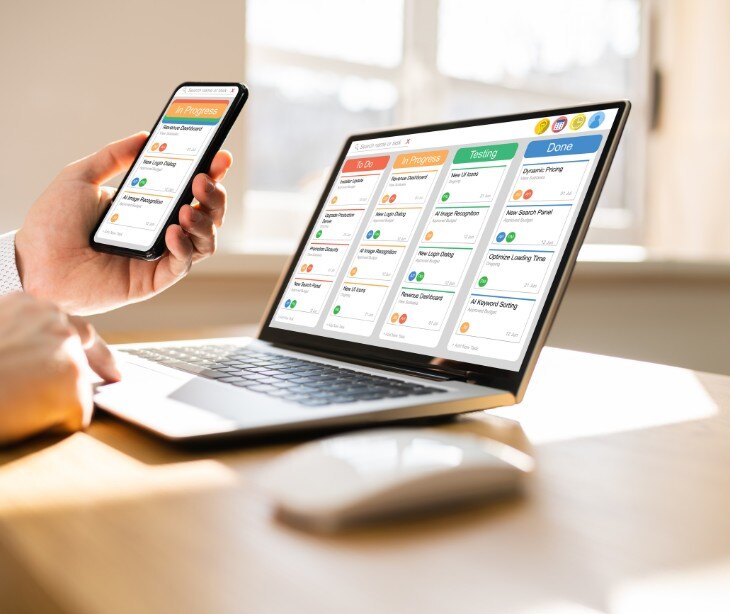
As healthcare providers strive to offer personalized, efficient, and compassionate care, the need for a robust customer relationship management (CRM) system has never been greater. A well-chosen healthcare CRM can streamline operations, enhance patient engagement, and ensure seamless communication across the entire care continuum. But with a plethora of options available, how do you choose the right one for your organization?
What is a CRM?
A customer relationship management (CRM) system is a technology solution that helps organizations manage and analyze interactions with current and potential customers. In the healthcare sector, a CRM system is used to streamline patient management, improve communication, and enhance the overall patient experience. According to a recent study, the global healthcare CRM market is projected to reach 8.5 billion by 2024 and is further anticipated to reach USD 47.3 billion by 2033. The market is also expecting to register a CAGR of 11.0% from 2024 to 2033. This growth indicates the increasing recognition among healthcare providers of the benefits of CRM systems, such as improved patient engagement, better care coordination, and enhanced operational efficiency.
See also: What is healthcare CRM?
What to consider when choosing a healthcare CRM
Healthcare-specific features
- Patient management: Ability to track patient interactions, appointments, medical history, and communication preferences.
- Appointment scheduling: Integration with scheduling systems to manage patient appointments efficiently.
- Care coordination: Tools to facilitate coordination between various healthcare providers and departments.
- Telehealth integration: Support for telehealth services and remote patient monitoring.
Integration capabilities
- EHR integration: Seamless integration with existing Electronic Health Records (EHR) systems.
- Billing systems: Compatibility with billing and insurance claim processing systems.
- Communication tools: Integration with email, SMS, and other patient communication tools.
Data security and compliance
- HIPAA compliance: Ensuring the CRM adheres to HIPAA data privacy and security regulations.
- Data encryption: Strong encryption methods to protect patient data.
- User access controls: Robust access control mechanisms to restrict data access to authorized personnel only.
User experience
- Ease of use: Intuitive user interface for medical staff and administrative users.
- Customization: Ability to customize workflows and fields to match the organization’s processes.
- Training and support: Availability of comprehensive training resources and ongoing support.
Analytics and reporting
- Patient insights: Tools for tracking patient engagement and satisfaction.
- Operational efficiency: Reports and dashboards to monitor and improve operational efficiency.
- Outcome tracking: Capabilities for tracking patient outcomes and clinical performance.
Scalability and flexibility
- Scalability: Ability to grow with the organization and handle increasing amounts of data.
- Modular features: Option to add or remove features as needed.
Cost considerations
- Total cost of ownership: Consider both initial setup costs and ongoing maintenance fees.
- Return on investment (ROI): Potential for the CRM to improve efficiency and patient satisfaction, leading to better ROI.
Vendor reputation and reviews
- Vendor experience: Track record of the vendor in the healthcare industry.
- Customer reviews: Feedback from other healthcare organizations using the CRM.
- Case studies: Examples of successful implementations in similar organizations.
See also:
FAQs
How does a healthcare CRM improve patient care?
A healthcare CRM improves patient care by providing a centralized platform for managing patient information, facilitating seamless communication, and enabling personalized interactions. It helps healthcare providers track patient histories, manage appointments, and follow up on care plans effectively.
What role does a healthcare CRM play in patient engagement?
A healthcare CRM enhances patient engagement by enabling personalized communication, reminders for appointments, follow-up messages, and providing patients with easy access to their medical information. This helps keep patients informed and involved in their own care.
What are the common challenges in adopting a healthcare CRM?
Common challenges include resistance to change among staff, data migration issues, integration difficulties with existing systems, ensuring user adoption, and maintaining data security and compliance.
Subscribe to Paubox Weekly
Every Friday we'll bring you the most important news from Paubox. Our aim is to make you smarter, faster.




